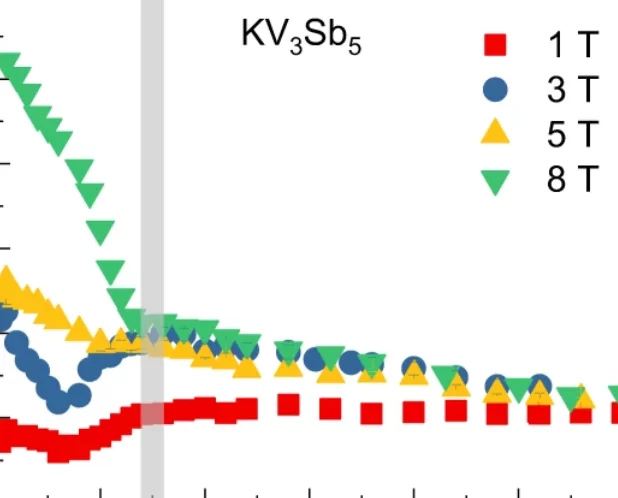Kagome lattices are intriguing and rich platforms for studying the intertwining of topology, electron correlation, and magnetism. These materials have been subject to tremendous experimental and theoretical studies not only due to their exciting physical properties but also as systems that may solve critical technological problems. We will review recent experimental progress on superconductivity and magnetic fingerprints of charge order in several kagome-lattice systems from the local-magnetic probe point of view by utilizing muon-spin rotation under extreme conditions, i.e., hydrostatic pressure, ultra low temperature and high magnetic field.
The systems include: (1) The series of compounds AV3Sb5 (A = K, Rb, Cs) with V kagome lattice which form the first kagome-based family that exhibits a cascade of symmetry-broken electronic orders, including charge order and superconductivity. In these systems, we find a time-reversal symmetry-breaking charge ordered state and tunable unconventional time-reversal symmetry-breaking superconductivity. (2) The system LaRu3Si2with distorted kagome layers of Ru, in which our experiments and calculations taken together point to nodeless moderate coupling superconductivity. It was also found that the electron-phonon coupling alone can only explain a small fraction of Tc from calculations, which suggests other factors enhancing Tc such as the correlation effect from the kagome flat band, the van Hove point on the kagome lattice, and the high density of states from the narrow kagome bands. (3) CeRu2 with a pristine Ru kagome lattice, which we classify as an exceedingly rare nodeless (with anisotropic s-wave gap symmetry) magnetic kagome superconductor.
Facility: SμS
Reference: Z. Guguchia et al, npj Quantum Materials 8, 41 (2023)
Read full article: here


